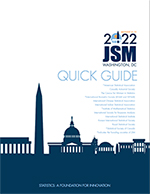Back
BIOP2022
Biopharmaceutical Section
A Case Study of 2-Stage Seamless Adaptive Sample Size Re-Estimation Design with Efficacy Interim Analysis When Slope Is the Primary Endpoint
Wednesday, September 21, 2022
-
Qi Zhang
Sanofi US Services Inc.
-
Yuqian Shen
Sanofi US Services Inc.
-
Hui Quan
Sanofi
-
Pascal Minini
Sanofi US Services Inc.
-
Lin Wang
Sanofi US Services Inc.
Due to highly unmet medical needs in rare disease areas, there is great desire to speed up the drug development process. A two-stage adaptive design option for a placebo-controlled registration study is being evaluated. Stage 1 consists of participants in ongoing phase 2 study with 1-year double blinded (DB) treatment and stage 2 includes newly enrolled participants with 2-year DB treatment period. The primary endpoint is the annualized rate of change (slope) for a continuous longitudinal measurement, which will be evaluated through a linear mixed model. An unblinded interim analysis will be performed using Stage 1 data to re-estimate the sample size for Stage 2, followed by another interim analysis for potential early efficacy stopping when all participants completed the 1-year DB treatment. To control the overall type 1 error rate, rather than using a conservative approach, the actual correlation between the interim and final test statistics will be taken into account to determine the final significance level given the pre-specified significance level for the interim efficacy analysis. Multiplicity adjustments for secondary endpoints analyses will also be considered.

